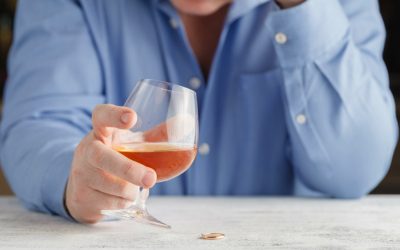27 Ago Seizure induction by alcohol in patients with epilepsy experience in two hospital clinics PMC
Contents
- How to stay safe with alcohol
- Cost of Hepatitis C care facilitation for HIV/Hepatitis C Co-infected people who use drugs
- Data collection using a standardized questionnaire, interview situations, and interview techniques
- Alcohol and Seizures: Basic Mechanisms and Clinical Concepts
- The Relationship Between Alcohol and Epilepsy
Only a minority of patients documented details on alcohol-related seizures in seizure diaries. Our retrospective data collection on alcohol-related seizures also depended on subjects’ recall capability, and may reflect bias due to recall errors. We addressed this by focusing only on alcohol-related seizures that had occurred within the last 12 months. Details were only recorded on those alcohol-related seizures that subjects were able to remember the best.
While it is important to be aware of the risks, research shows that most people with epilepsy can drink a small amount of alcohol without any serious danger. You will of course want to check with your doctor and read the leaflet inside your anti-epilepsy medication, but an occasional beer, glass or wine or spirit is normally fine. Research indicates that adults with epilepsy may have one or two alcoholic drinks a day without worsening their seizures or causing changes in the blood levels of their seizure medications. When you begin epilepsy medication, you should receive a leaflet that outlines the guidelines for taking this medication.
- Even those who drink heavily for a short period are not shown to be at a higher risk for epilepsy.
- Moderate to high alcohol consumption has also been found to increase the risk¹ of seizure, even in those who are not epileptic.
- Usually, people with epilepsy can safely drink one to two drinks per day without making their seizures worse or altering the amount of seizure medication in the bloodstream.
- Alcohol detox can be uncomfortable or even dangerous, but with professional help can be a safe experience.
- In several test-interviews, patients were intimidated when being asked about nicotine, alcohol, and illicit drug intake in front of their companions.
Ninety-five patients (30.7%) were alcohol-experienced but had been abstinent in the last year. Based on surveys of volume and frequency of consumption, approximately 10 to 20 per cent of the adult population “drink heavily.” Approximately 10 per cent of this population will have seizures. Another 4.5 per cent of this population will be diagnosed with epilepsy by the age of 80.
How to stay safe with alcohol
However if you are an adult, you should be able to make an informed decision about what’s right for you. Ninety-two patients had epilepsy, and 42 patients had isolated seizures not diagnosed as epilepsy. At hospital admission, researchers conducted a semistructured interview and applied the Alcohol Use Disorders Identification Test . Weekly HCV care facilitation costs were approximately $450 per participant, but approximately $110 at a real-world setting maximum caseload of 10 participants per week. No healthcare cost offsets were identified during the trial period, although future savings might result from successful HCV treatment.

Seizure medicines can lower your tolerance for alcohol, so the immediate effects of alcohol consumption are greater. Rapid intoxication is a big problem because many of the side effects of these medicines are similar to the acute effects of alcohol itself. If you are sensitive to alcohol or seizure medicines, you may find the combination even worse.
Cost of Hepatitis C care facilitation for HIV/Hepatitis C Co-infected people who use drugs
There are two important considerations when someone with epilepsy is considering using alcohol. The first is that those with epilepsy may bemore likely to have a seizure while withdrawing from alcoholor using alcohol, even if it is in smaller amounts. The second consideration is the interactions that can occur with mixing alcohol and epilepsy medicine. The interactions can change the risk of an epileptic seizure and the risk of toxic amounts of epilepsy medication in their system. While those with epilepsy are at a higher risk of seizures while using alcohol, the amount of risk varies based on the amount of alcohol used. Someone who has epilepsy and wishes to use alcohol may be able to, but they should speak with their doctor first to learn about the risks in their unique situation and how alcohol could affect their epilepsy.
Moderate to heavy alcohol use is never recommended for people with epilepsy. Withdrawal seizures are most common among people who have abused alcohol for years. Small amounts of alcohol don’t change the amount of seizure medicines in your blood or change findings on EEG studies. This warrants a shift in preventive responses, as the target groups differ. Allocation of responding was reversed when the cost of the preferred drug increased, or the cost of the non-preferred drug decreased. Drug-paired cues and MDPV, cocaine, and methamphetamine pretreatments reinstated responding on both drug levers, regardless of preference.
What makes epilepsy worse?
Missed medication, lack of sleep, stress, alcohol, and menstruation are some of the most common triggers, but there are many more. Flashing lights can cause seizures in some people, but it's much less frequent than you might imagine.
Victor M, Brausch C. The role of abstinence in the genesis of alcoholic epilepsy. Independent predictors for alcohol consumption within the last 12 months. Alcohol will upset the blood serum level of phenytoin.Acute alcohol intake will increase blood serum levels. “Withdrawal” seizures may occur 6 to 72 hours later, after drinking has stopped. Binge drinking is drinking too much at once or over long periods of time.
Data collection using a standardized questionnaire, interview situations, and interview techniques
These guidelines suggest men should not exceed two drinks a day, while women should consume a maximum of one alcoholic drink per day. Excessive drinking should be completely avoided, especially for those on prescribed epilepsy medication. This article is designed to guide those wondering about alcohol and epilepsy, but professional medical advice is vital before you or your loved ones make any decisions regarding your health. Seizure induction by alcohol in patients with epilepsy experience in two hospital clinics.

In this study, we aimed to systematically analyze alcohol drinking and the occurrence of alcohol-related seizures in 310 epilepsy patients. Even though alcohol use may trigger seizures, 65% of interviewed subjects had consumed alcohol within the last 12 months and every third patient had consumed alcohol within the last 7 days. Our results are in line with previous population-based 5 myths about drinking alcohol, debunked study findings from Canada reporting a 12-month prevalence of alcohol use in patients with epilepsy of 57.6% . Regarding chronic heavy alcohol consumption, our cohort of patients had used alcohol far more responsibly than the general adult German population. Only 2.9% of our interviewed study subjects were AUDIT positive indicating hazardous and harmful alcohol intake.
Alcohol and Seizures: Basic Mechanisms and Clinical Concepts
Overdose deaths without any illicit drugs present at autopsy have increased in recent years. These deaths, where only potentially prescription medications were detected, were more common among women and with higher age. For people with epilepsy, alcohol use disorders can be particularly risky. If you or someone you love has epilepsy and is struggling with alcohol use, help is available. Contact The Recovery Village Ridgefield to learn how we can help get you on the path to recovery. The alcohol detox timeline and the specific protocol for alcohol withdrawal treatment will depend on the severity of withdrawal symptoms but can be expected to take one to two weeks for most cases.
What is the average lifespan of a person with epilepsy?
Summary: On average, people with epilepsy live 10-12 years fewer than those who do not have the condition. Excess mortality is particularly pronounced among people with epilepsy and mental disorders. On average, people with epilepsy live 10-12 years fewer than those who do not have the condition.
However, few studies have investigated the effect of alcohol on the occurrence of unprovoked seizures. In 2010, Samokhvalov et al. performed a meta-analysis to estimate the risk of alcohol consumption on the occurrence of unprovoked seizures or epilepsy. Six case-control studies were included and showed that alcohol users had an increased risk of unprovoked seizure or epilepsy with a pooled relative risk of 2.19 (95% confidence interval alcohol toxicity and withdrawal 1.82–2.63). However, this study was comprised of small case-control studies and may not represent the entire population. Therefore, it is necessary to analyse additional cohort research and large studies to explain the correlation between alcohol consumption and seizures. Importantly, people with epilepsy are strongly advised to limit daily alcohol intake to a maximum of two drinks, and it is recommended that they be consumed slowly.
The Relationship Between Alcohol and Epilepsy
Alcohol consumption and nonfocal seizures were increased in isolated seizures, suggesting withdrawal. —Alcohol is a major seizure precipitant in the context of hazardous drinking and withdrawal, according to a study presented at the 71st Annual Meeting of the American Epilepsy Society. Occasional social drinking, however, is an uncommon cause of seizure breakthrough in predominantly focal epilepsy, said the researchers.
People who have epilepsy often wonder if it is safe to drinkalcoholwhen you have epilepsy. There are several different factors that can increase your risk of having seizures when you have epilepsy. Because alcohol affects the brain, it makes sense that alcohol could increase your risk of an epileptic seizure. We surveyed 70 epileptic patients attending a general neurology clinic and 64 patients attending an epilepsy clinic to determine the incidence of alcohol-related seizures. Seven (10%) of the neurology clinic patients and 9 (15%) of the epilepsy clinic patients reported exacerbation of their seizures with alcohol.
What should you not do if you have epilepsy?
- Do not miss doses of your medications.
- Get plenty of sleep. #
- Drink plenty of water.
- Eat a healthy balanced diet and do not skip meals.
- Try to reduce stress and control anxiety.
- Avoid alcohol and recreational drugs. #
- Certain people with epilepsy should avoid flashing lights.
People who are moderate drinkers are not known to be more likely to develop epilepsy than others. Even those who drink heavily for a short period are not shown to be at a higher risk for epilepsy. In patients with generalized genetic epilepsy, seizures commonly manifest within 30 min after awakening. A transcranial magnetic stimulation study on patients with genetic generalized epilepsy demonstrated that motor cortex excitability was significantly increased in the early morning . To ensure a comparable evaluation, alcohol consumption was translated and expressed in standard drinks containing 10 g of pure alcohol . This book is based on an International Symposium on Alcohol and Seizures, which was presented in Washington, D.C., in September 1988 and involved several prominent investigators with interests in alcoholism and epilepsy.
However, whether idiopathic epilepsy and alcohol-induced epilepsy are the same disorder remains unclear. Interestingly, epileptic seizures have been shown to have verydifferent effects on brain activitycompared to the effects of alcohol-related seizures. Alcohol withdrawal seizures are more common in those who have been binge drinking or are trying to stop using alcohol after a prolonged period of alcohol use. Those who overdose on alcohol may also experiencealcohol poisoning seizuresas the toxins from alcohol build up in their bloodstream. Some studies have shown that alcoholism, or chronic abuse of alcohol, is linked with the development of epilepsy in some people. This research suggests that repeated alcohol withdrawal seizures may make the brain more excitable.
Alcohol abuse and epilepsy are two common problems that affect a substantial percentage of the US population. Unlike the case-control studies, the cohort studies did not reveal a significant association between alcohol consumption and epilepsy. Further large cohort studies for the general population are required to assert a definite causal relationship between alcohol consumption and epilepsy and to identify a potential threshold. Alcohol caninterfere with the way that your body uses epilepsy medication, making these medicines less effective and raising the risk of a seizure occurring. When alcohol and medications are mixed, it can also take the body longer to process both at the same time, leading to increased levels of alcohol and medication. This increases the risk of an alcohol overdose or that you will get too much medicine in your body, potentially increasing side effects and creating toxic levels of medication.
They defined binge drinking as drinking more than four units in one session for females and more than five units in one session for males. They defined social drinking as having an AUDIT score of less than 8 and not drinking more than 12 units in one day. From year 2000 the annual numbers of overdose deaths decreased, specifically during 2000–2003, thereafter a relatively what is a high functioning alcoholic stable annual number was observed. Heroin related deaths have decreased, whereas medical opioids for pain treatment have increased with time. Men in their early 40′s dominate the overall numbers of deaths, but significantly different sex patterns emerge when studying the specific drugs. During the past 20 years, the mean age at overdose death has increased by 10 years .

If you have epilepsy, it is crucial to consult with your physician regarding alcohol consumption and your specific condition. It is generally safe for people with epilepsy to drink a small amount of alcohol up to a certain level. Drinking alcohol can cause changes in the brain’s electrical activity, particularly when the body is going through the withdrawal process from alcohol. If you don’t drink, starting drinking with epilepsy is not a good idea, as your body is probably more sensitive to alcohol and its impact.
When alcohol is stopped suddenly or is reduced by large amounts over a short period of time, a seizure may occur. The withdrawal seizures are provoked by the alcohol withdrawal and are not due to epilepsy itself. Investigators defined withdrawal seizure as having an AUDIT score of 8 or greater and alcohol intake within the last two days.
We make it easy for you to participate in a clinical trial for Epilepsy, and get access to the latest treatments not yet widely available – and be a part of finding a cure. A definition and a description of other convulsions related to alcoholism. This is an open-access article distributed under the terms of the Creative Commons Attribution License . No use, distribution or reproduction is permitted which does not comply with these terms. Since 1956, we have been serving the province as a registered health charity incorporated under the statutes of Ontario as a non-profit and non-governmental organization. We aim to raise public awareness and improve education through publications, conferences, outreach initiatives and our website.

